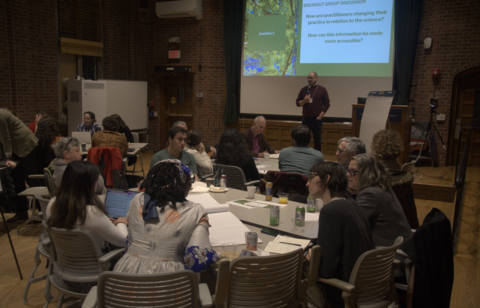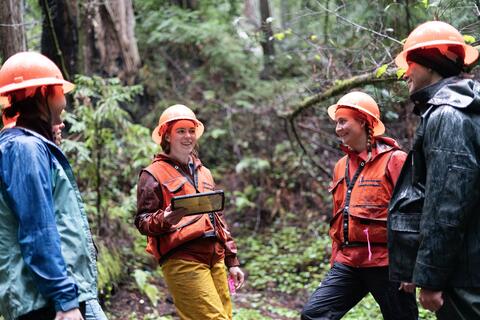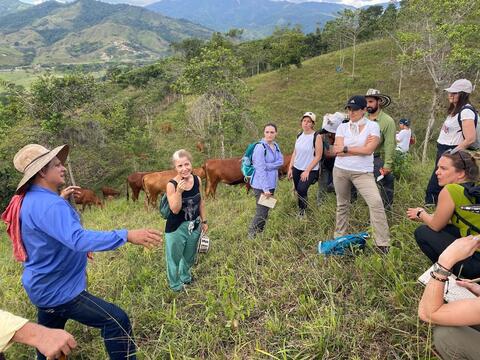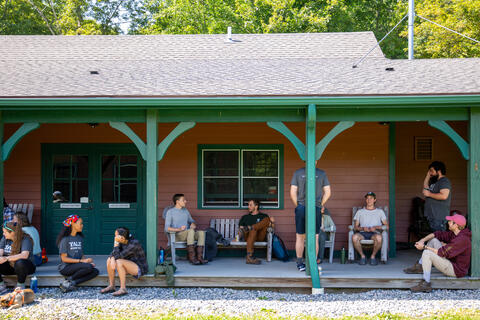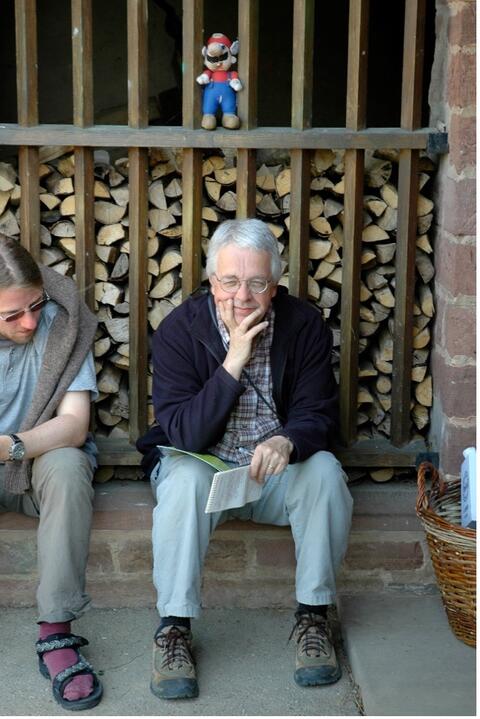
By: Sara Santiago
Co-Management Conveners
What does it mean to co-manage public lands? The standard practice has been defined as seeking Native input for already developed government plans, but the Yale Center for Environmental Justice calls for active, joint management between sovereign nations—the U.S. federal government and Native nations. The Forest School at the Yale School of the Environment, in partnership with YCEJ, held a workshop on March 27, 2023, for practitioners, scholars, funders, and federal government representatives to explore tribal co-management case studies and create a white paper to guide contemporary co-management.
“’We’re never in rooms like this,’” Kristin Barendregt-Ludwig, YCEJ program manager, says she heard this over and over amongst participants in the workshop. Barendregt-Ludwig explains that Pat Gonzales-Rogers, distinguished practitioner in residency at YCEJ, came to YCEJ with the vision for this workshop, noting how important it is for an environmental school to engage on these topics. YCEJ quickly identified The Forest School as a partner because of TFS’ interest in Native forestry and TFS’ goal to better honor Indigenous knowledge in forestry practice, per the School’s strategic plan. Collaborating with Liz Felker, associate director of The Forests Dialogue and member of The Forest School, YCEJ and TFS were able to design a multistakeholder convening based upon TFD’s stakeholder engagement dialogue approach.
A thought leader in co-management and former director of the Bears Ears Coalition, Gonzales-Rogers designed the workshop around two key case studies, Bears Ears Monument and the Columbia Inter-Tribal Fish Commission, which are contemporary success stories in tribal co-management, to build a shared understanding of the characteristics and levers needed for success. Gonzales-Rogers called upon the expertise of Aja DeCoteau, citizen of the Confederated Tribes and Bands of Yakama Nation and CRITFC’s executive director, and the workshop’s facilitator Dean Kevin Washburn, citizen of the Chickasaw Nation of Oklahoma and the N. William Hines Dean and Professor of Law at the University of Iowa. Alumni of the Yale School of the Environment and Yale Law School, respectively, DeCoteau and Washburn set the tone and narratives to connect participants with one another and with tribal lands. Along with this group of leaders, students of the Yale School of the Environment were integral to organizing and coordinating the workshop.
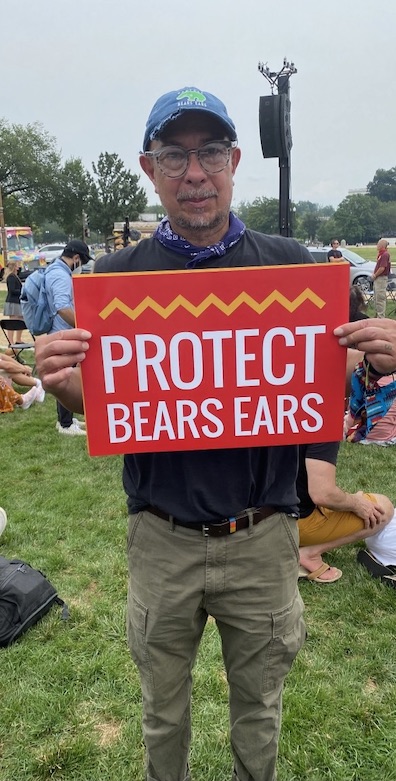
Pat Gonzales-Rogers served as the director of the Bears Ears Coalition before arriving at Yale.
Why Co-Management and Why Now?
Gonzales-Rogers defines co-management as shared decision making that guarantees resources from the federal government; it offers the highest degree of tribal participation. While the term co-stewardship is used interchangeably by the public, it denotes less tribal autonomy, according to Gonzales-Rogers.
Gonzales-Rogers notes that now is co-management’s moment in the spotlight. He believes it holds a “tangible, multi-force multiplier”: it gives autonomy back to tribes; it is efficient; it allows for tribes to resume cultural and religious practices on the landscape and in management; and it underpins environmental justice.
To make co-management a contemporary success with many peoples in many places, he says we must operate with love and compassion and be incredibly courageous. He also calls for “collective, lucid thoughts” while maintaining the “latitude to be expansive enough to support different situations” when creating co-management plans.
Developing a White Paper and a Cohesive Approach
While the workshop was held in March, the conveners, including DeCoteau, Gonzales-Rogers, and YCEJ’s faculty director Professor Gerald Torres and staff director Michel Gelobter, have spent the summer digesting. A major output is a white paper, currently in draft form, meant to serve as a cohesive guide for co-management initiatives. The paper calls for reconnecting people to the land by putting “public lands in Native hands.” The authors outline challenges to tribal input: strained budgets, ephemeral federal government staff, and legacies of colonialism. They look toward creating opportunities for tribal economic development, knowledge, and infusion for landscape management.
Gonzales-Rogers expects that the white paper will be “chewed up, spit out, and criticized” before it can be repackaged and used. He and tribal partners will “go on the road” to test it with tribal communities and receive their input. Afterall, he says, Native folks are the ones who will be living with its effects. Once that process is complete, TFS and YCEJ plan to hold another gathering in spring 2024 on the East Coast to finalize the paper.
For YCEJ, this is only the beginning of major efforts to create links to Indigenous environmental groups globally and tribal nations in the U.S to address environmental justice issues as they arise in this specific legal and policy context.
